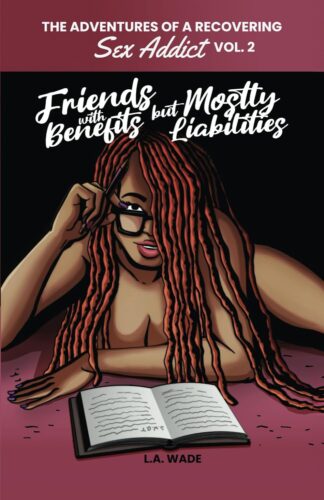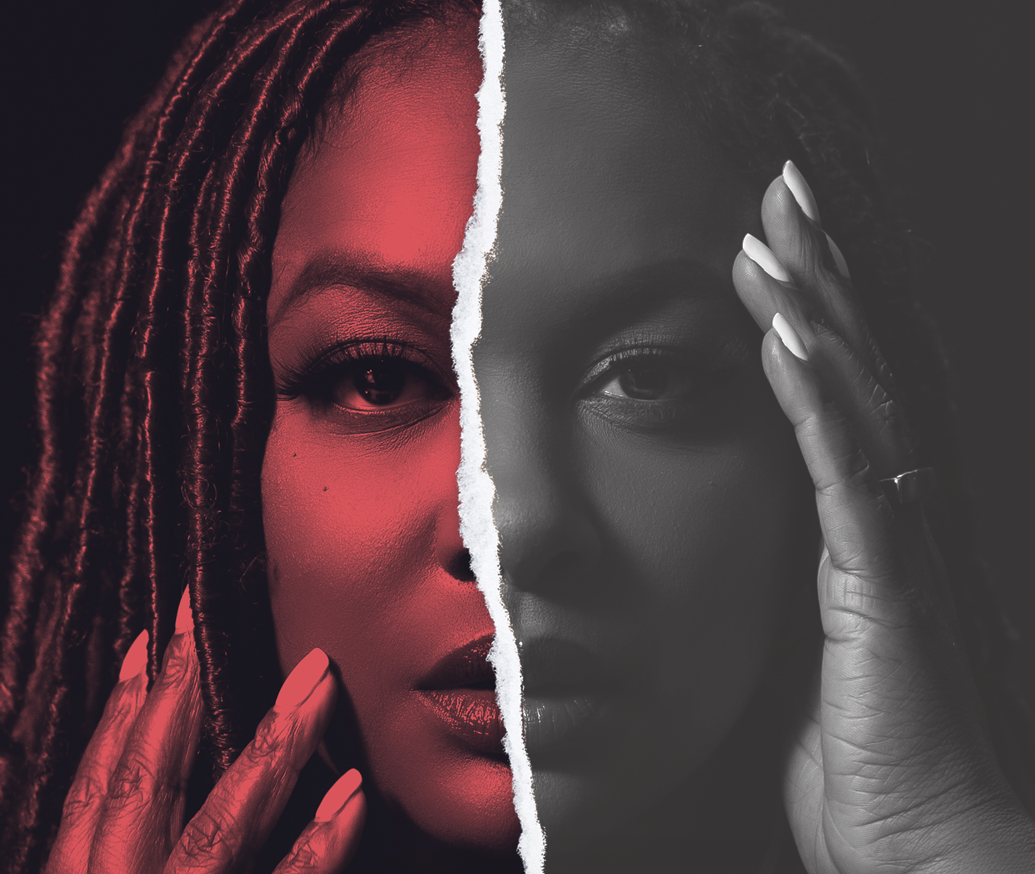What are you thirsty for? That is the question L.A. Wade has been pondering and asking others for years, first in her raunchy podcast CockTales with L.A., and then in her book series turned short film, The Adventures of a Recovering Sex Addict.
L.A.’s book series follows the dating life of Cali Church, a recovering sex addict trying to find herself. In Thirsty AF, the short film adaptation, Cali joins a writing group aimed at overcoming trauma. Self-discovery and misadventures ensue and she meets a diverse cast of characters, all grappling with different addictions.
The character of Cali Church is fictional, but her journey is based on L.A.’s own lived experiences with sex addiction and trauma. L.A. approaches her storytelling with humour, unflinching honesty, and vulnerability, discussing addiction and recovery openly. This authenticity has resonated—in 2022, she was awarded the ByBlacks People’s Choice Award for Best Author.
Last month, Thirsty AF premiered at Toronto’s Royal Cinema, alongside the second installment in the book series, titled Friends With Benefits but Mostly Liabilities. An unstoppable creative, L.A. hopes to expand the short film into a series, where she can dive deeper into all of the different ways we hurt, heal, and love.
We unpacked so much in our conversation with L.A., from addiction and mental health, to dating stories to thoughtful insights on her recovery journey.
How did the idea to write The Adventures of a Recovering Sex Addict first arise?
I was writing my biography, and I felt like I needed to create a character that was outside of my own personal experience. I had done so much work in my healing journey, and creating her, it was like I could tell stories without worrying about my personal life being exploded. Writing gives me free rein to explore and imagine and fantasize and create, while having an underscore of the truth and the depth of what I had been experiencing.
How would you describe the character of Cali Church?
She is all the things! She’s like me, so if I describe myself, I am athletic, I’m funny, I’m intelligent. I can be sexy if I try—watching videos of Rihanna, I can get it down! I love to laugh. Sometimes I say things that are inappropriate, but it never comes from a harsh place. I really am just trying to figure it out. Even though I’m now 50 years old.

Can you tell us a bit more about your journey and the challenges you’ve faced along the way?
It’s difficult to understand my journey. I was raised by television and the church… and that’s a really bad combination. One thing I am bringing to the surface is the fact that I suffer from complex PTSD. I have learning disabilities. I was able to not only embrace the fact that I have these issues, I realized in my healing circles that I was actually helping people not have so much stigmatization around who they were.
My problems are internal. People see me as high functioning, but when our society moves really fast and doesn’t allow me to take my time or just say what I really mean, it can become stressful for somebody who is neurodivergent, who has experienced so much trauma. It’s difficult. There’s no space for us. And we are hard on ourselves. I hear it in my therapy groups. People beat themselves up over what happened to them, and how they’re reacting to it. I think I give enough of a diverse experience throughout the entire book that allows you to say, maybe I can have a little bit more patience with people because you never know what people are going through.
When it comes to sex and love addiction, what were the experiences or takeaways from your life that you were most interested in adapting for the books and film?
Cali is going through a divorce in the film. I was older when I got separated and divorced. I was with him for 16 years and I started to panic. I thought, oh my god, I have to replace this man. I was bartering sex for love, in a way. I called myself a sex addict, but really, I’m like a love addict that utilized sex to try to find love. When you start dating someone, it’s expected that you’re just going to share your body with them. And so I went through a period of trying to figure that out and failing miserably, while having fun at the same time. But after a while, like the movie says, if you’re thirsty and you’re just drinking whatever’s available, if it’s Coca-Cola or Sprite, it might taste good in the moment, but it’s not going to make you satiated. You’re going to still be thirsty. I needed to replace the soda pops of my life with some water that could really quench the thirst that I was looking for. And I found that in my own mindfulness practices and my personal relationship with God.
What did you want to explore about addiction in Thirsty AF?
A lot of my podcasts would be asking the question: What do you thirst for? When I was going to write the movie, I really resonated with this idea that love addiction and sex addiction was my thirst, but there are people who are addicted to opioids, there are people who are addicted to alcohol, there are people who are gambling, there are people who are shoplifting. What are they thirsty for? I discovered this through the different characters that I created around Cali, in this writing group that they go to to overcome the traumas of their lives. I really want to explore those ideas of thirst in different realms and different cultures. There’s purposely a diverse cast because we all have different cultural impressions on how we attack certain things.
Talking about addiction can come with a lot of stigma and judgment. How did you navigate that throughout your life?
Living in my truth has been the biggest freedom I’ve ever experienced. I’m not worried. I’ve been very open and transparent and authentic about who I am. I’ve apologized for hurting people. But sometimes people want to keep you where you were, and they don’t they don’t understand the growth. When you keep those kinds of people around you, you can stay stuck in the very thing that makes you less of who you want to be. I am the love that I want to feel in my own life. I’ve learned how to begin to give it to myself, and I think writing and the opportunity to do this film has really helped me do that.
Would you say that writing these books was part of your recovery and healing journey?
100%. I think my book has helped me hold myself accountable because I’m recounting these stories and I have to be fair. I almost feel like a journalist in a way, where I have to represent the other side of this experience, even though I can’t explain it for them. When I slow down and look at how my interactions impacted not only me, I can understand it from the other side as well.
I know that I’ve healed because now I can laugh at myself. I can laugh at the journey. I don’t want to traumatize people. I just want them to know that these issues exist in people’s lives, and that you can have some humour and some sobering times when you look at it in reflection. And it is not only my healing, a lot of people who read the first book have poured into my DMs about how much the book has impacted them.
As people read the books or watch the film, what do you imagine they’ll be talking about with their friends?
I call my genre self-help erotica. So there’s a lot of accountability. They’re going to be like, yeah, I’ve been in a situation like that, I’ve dated somebody like that. The thing that you would never want anyone to know, I actually turn it inside out, and I reveal it. And that’s why people can resonate with it, because they can recognize themselves.




 Follow Us On Instagram
Follow Us On Instagram
